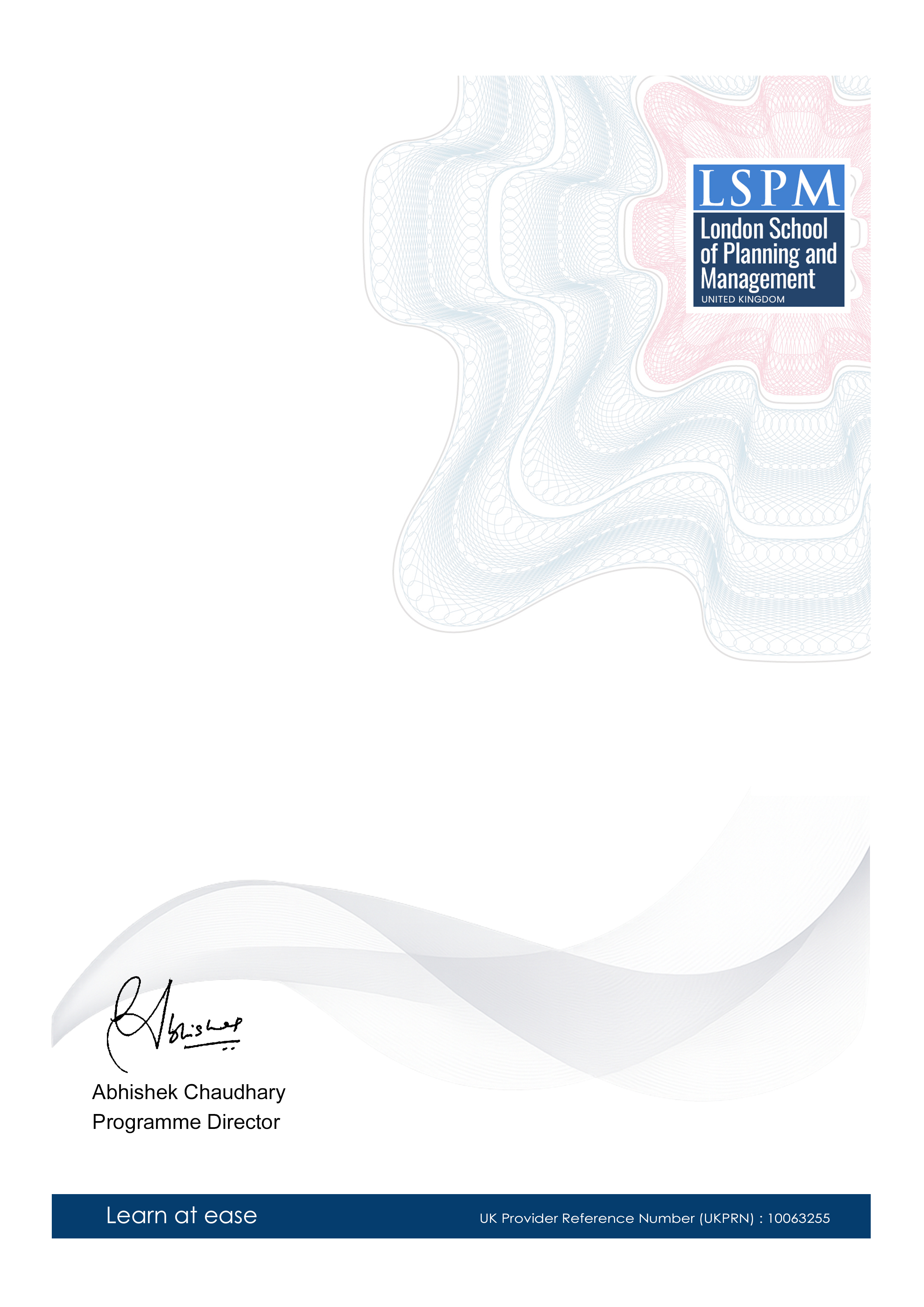Certificate Programme in Sustainable Fisheries Ecosystem Analysis
-- viewing nowThe Certificate Programme in Sustainable Fisheries Ecosystem Analysis is a comprehensive course designed to equip learners with the essential skills required to address the complex challenges facing the fishing industry today. This programme emphasizes the importance of understanding the ecological, economic, and social aspects of fisheries management and how they are interconnected.
7,172+
Students enrolled
GBP £ 149
GBP £ 215
Save 44% with our special offer
About this course
100% online
Learn from anywhere
Shareable certificate
Add to your LinkedIn profile
2 months to complete
at 2-3 hours a week
Start anytime
No waiting period
Course details
Unit 1: Introduction to Sustainable Fisheries Ecosystem Analysis • Cover foundational concepts and principles of sustainable fisheries, the importance of ecosystem-based approaches, and key challenges in fisheries management.
Unit 2: Fisheries Science Basics • Explore key scientific concepts, including life history, population dynamics, and stock assessment, to understand and manage fisheries sustainably.
Unit 3: Ecosystem Structure and Function • Delve into the structure and function of marine ecosystems, focusing on the roles of species, habitats, and ecological interactions in supporting fisheries.
Unit 4: Fisheries Monitoring and Assessment • Learn methods for monitoring and assessing fisheries, including data collection, analysis, and modeling to inform sustainable management.
Unit 5: Fisheries Management Strategies • Examine various management approaches, such as catch shares, quotas, and marine protected areas, and their role in promoting sustainable fisheries.
Unit 6: Climate Change and Fisheries • Investigate the impacts of climate change on fisheries and ecosystems, and explore adaptation strategies to ensure sustainable fisheries in a changing climate.
Unit 7: Socioeconomic Considerations in Fisheries • Understand the socioeconomic dimensions of fisheries, including the roles of communities, markets, and governance, to promote sustainable and equitable outcomes.
Unit 8: Stakeholder Engagement and Collaborative Management • Develop skills for engaging with stakeholders, including fishers, scientists, and policymakers, and facilitate collaborative management processes for sustainable fisheries.
Unit 9: Fisheries Policy and Legislation • Explore international, national, and regional policies and regulations related to sustainable fisheries, and their role in fostering responsible and effective management.
Unit 10: Ecosystem-Based Fisheries Management • Synthesize knowledge and skills to develop and implement ecosystem-based fisheries management plans
Career path
Entry requirements
- Basic understanding of the subject matter
- Proficiency in English language
- Computer and internet access
- Basic computer skills
- Dedication to complete the course
No prior formal qualifications required. Course designed for accessibility.
Course status
This course provides practical knowledge and skills for professional development. It is:
- Not accredited by a recognized body
- Not regulated by an authorized institution
- Complementary to formal qualifications
You'll receive a certificate of completion upon successfully finishing the course.
Why people choose us for their career
Loading reviews...
Frequently Asked Questions
Skills you'll gain
Course fee
- 3-4 hours per week
- Early certificate delivery
- Open enrollment - start anytime
- 2-3 hours per week
- Regular certificate delivery
- Open enrollment - start anytime
- Full course access
- Digital certificate
- Course materials
Get course information
Earn a career certificate

